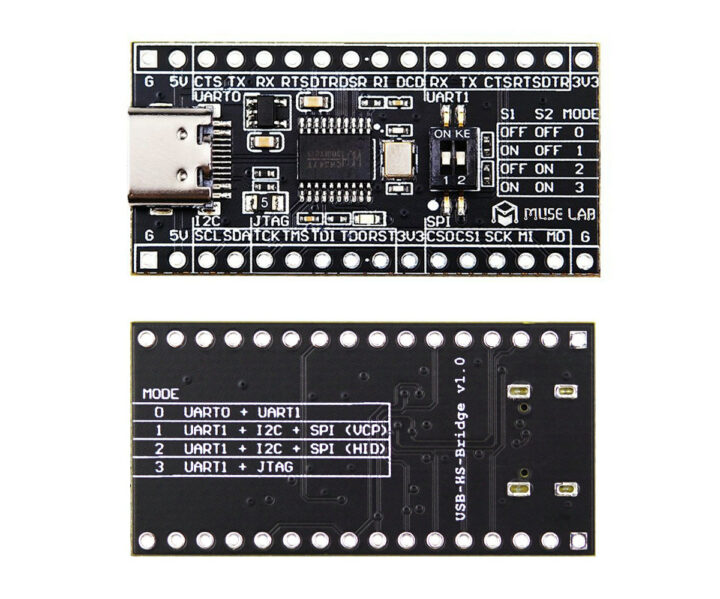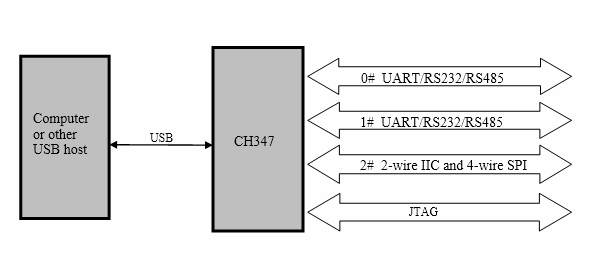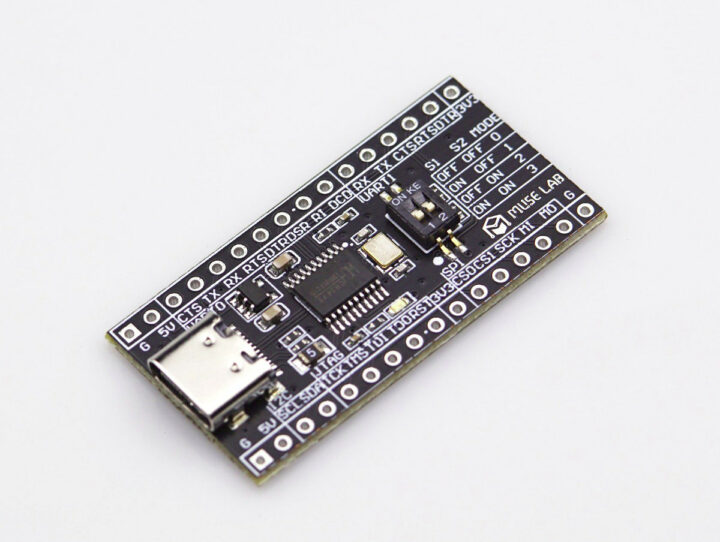MuseLab USB-HS-Bridge is an inexpensive ($5) board based on WCH CH347 chip with a USB 2.0 Type-C interface that acts as a bridge for I2C, SPI, UART, and JTAG interfaces, as well as GPIOs.
It’s notably useful to debug and download bitstreams to FPGA development boards, but it can also be used to connect various peripherals such as I2C sensors, SPI flash devices, UART devices to basically any host with a spare USB 2.0 host port.
USB-HS-Bridge specifications:
- Chip – WCH CH347 high-speed USB to UART, I2C, SPI and JTAG chip (See link to the datasheet for details)
- USB – 1x USB 2.0 Type-C port with up to 480 Mbps data rate
- I/Os – 2x 16-pin header with
- 2x UART interfaces up to 9 Mbps baudrate
- 1x I2C for EEPROM or sensors
- 1x SPI master interface with 2 chip select signals to control up to 2x SPI slave devices. The SPI interface can operate up to 36MHz
- 4-wire standard JTAG interface up to 60MHz
- Some of the signals can also be reconfigured as GPIOs instead (CH347 offers up to 8x reconfigurable GPIOs depending on the mode used)
- 5V, 3.3V, and GND signals
- Misc – 2-way DIP switch for mode selection:
- 00 – UART0 and UART1 enabled
- 10 – UART1, I2C, and SPI (VCP = virtual COM port, driver required in Windows)
- 01 – UART1, I2C, and SPI (HID – human interface device)
- 11 – UART1 and JTAG enabled
- Power Supply – 5V via USB port
- Dimensions – 41 x 21 mm
 The CH347 is a fixed-function chip so there’s no firmware programming, but MuseLab still provided the PDF schematics, some instructions, the link to the Windows driver, and an SPI sample written in C language for Linux on Github.
The CH347 is a fixed-function chip so there’s no firmware programming, but MuseLab still provided the PDF schematics, some instructions, the link to the Windows driver, and an SPI sample written in C language for Linux on Github.

USB-HS-Bridge CH347 board can be purchased for just $5 on Tindie or Aliexpress, although the latter may offer cheaper shipping depending on where you live.

Jean-Luc started CNX Software in 2010 as a part-time endeavor, before quitting his job as a software engineering manager, and starting to write daily news, and reviews full time later in 2011.
Support CNX Software! Donate via cryptocurrencies, become a Patron on Patreon, or purchase goods on Amazon or Aliexpress





